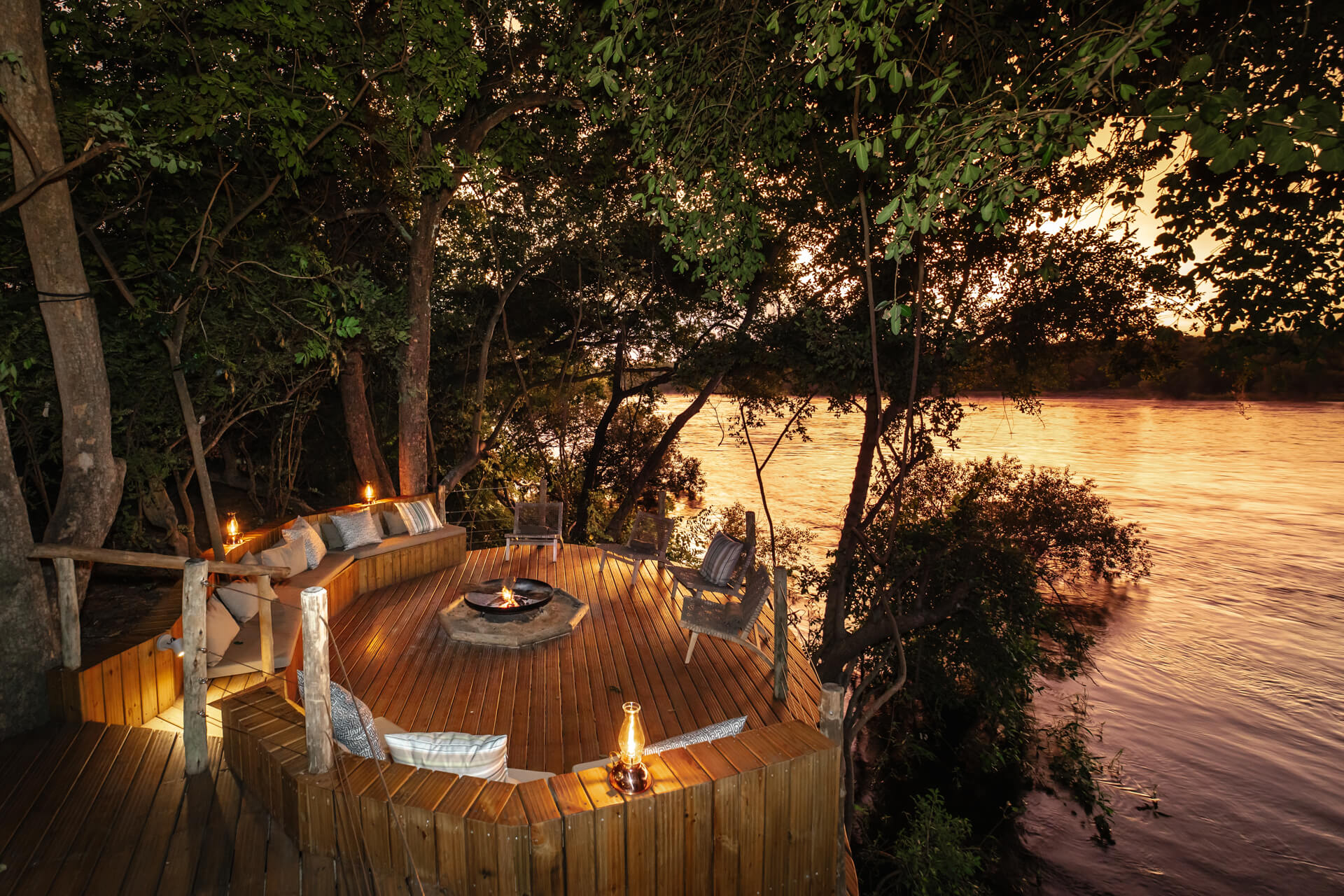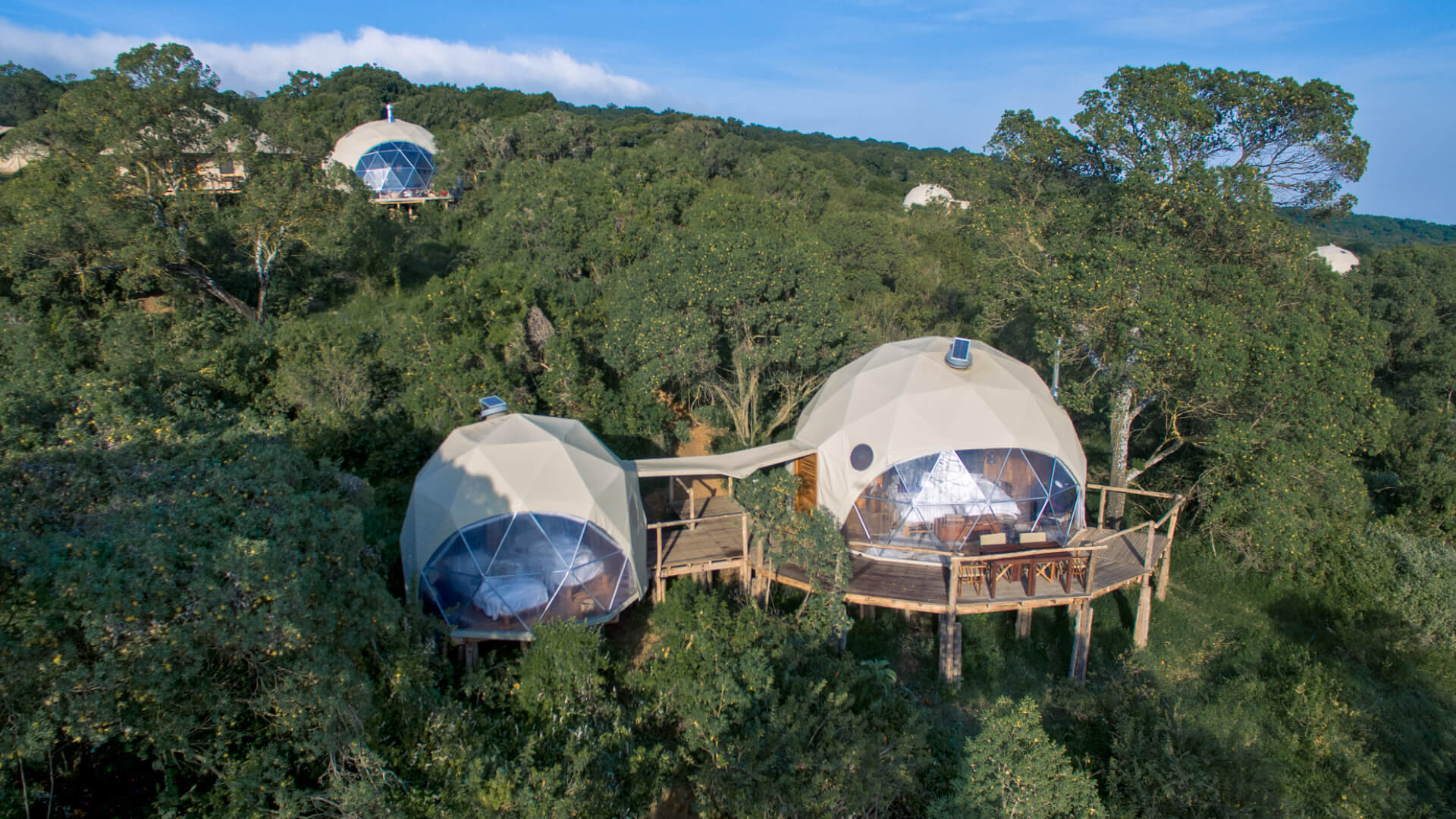Southern and East Africa’s wealth of high-end safari lodges are blazing sustainability trails for the broader hospitality industry and all other economic sectors to follow.
Leading eco-tourism operators in the region have perfected the art of minimising environmental impact. The focus on sustainability extends from careful assessment of lodge locations to design and construction, operational sustainability and intensive involvement of guests and communities in conservation awareness efforts.
From the ground up
&Beyond COO: Sales and Touring Ryan Powell explained the sustainability considerations in any refurbishment or new build of one of the group’s lodges.
“Sustainability has always been at the heart of what we do and has always been considered with any new refurbishments. This needs to be blended in a way that does not compromise the guest experience but delivers on some key sustainability focus areas,” he told Tourism Update.
Powell cited the design and positioning of the newly refurbished &Beyond Ngala Tented Camp in South Africa’s Timbavati Private Nature Reserve as a prime example of balancing sustainability with practicality.
“The gym and spa buildings have been built as a suspended structure with localised concrete footings allowing for natural vegetation to continue below the building. In the rare case that the Timbavati River floods, the concrete footings will also anchor the buildings in their position.”
Once refurbishment is complete, the lodge will feature LoRA smart water meters to accurately monitor water use and provide data that will help reduce consumption.
Lucy Cooke, Marketing Manager for Isibindi Africa Lodges, which operates a portfolio of three lodges in South Africa and one in Zimbabwe, emphasised the company’s focus on using sustainably harvested timber in builds.

“We only use exotic species such as pine and saligna in the construction of our lodges and decking. We do not allow the use of indigenous trees such as African teak as these forests are being denuded throughout Africa to supply the construction industry. We don't remove vegetation other than undergrowth during the construction phase: no mature trees are taken down,” Cooke explained.
A blueprint for sustainable operations
Operationally, game lodges are leading the implementation of energy-efficiency, water-saving and waste-reduction measures.
East African operator Asilia Africa, recent winner of the ATTA for Action Award for Eco-Innovation in Hospitality, addresses climate-related risks in all its plans.
“The plans outline our measures to reduce our vulnerability to identified climate-related risks such as investing in water-conservation technologies and increased infrastructural resilience. The process is integrated into our overall risk management, ensuring climate risk is given the same level of scrutiny as other categories of risk,” said Asilia Africa Marketing Manager Lexy Ramoroka.
The high-end operator has invested heavily in solar power. Currently, 75% of all electricity in its camps is solar-powered with a view to increasing this to 90%. The company is also turning attention to reducing the use of fossil fuels in vehicles and generators to offset carbon emissions.
“Carbon offsetting will continue to be a vital part of reducing our environmental impact. While our priority is on reducing emissions, offsets will complement our efforts to reduce our direct and indirect greenhouse gas emissions,” said Ramoroka.

The group is involved in a pioneering partnership with Carbon Tanzania. This initiative generated U$6.9 million for communities through the sale of carbon credits in 2023.
Meanwhile, Isibindi Africa has adopted either 100% solar or two-tier power at its lodges while using innovative eco-friendly water purification measures through natural vegetation and activated carbon filtering, according to Cooke.
Aiming to achieve net zero carbon emissions by 2030, &Beyond is planning to establish a solar farm at Forest Lodge in Phinda Private Game Reserve in South Africa’s KwaZulu-Natal province.
“We are well on our way to this target while successfully reducing water use across our operations. Importantly, this is not and will never be at the expense of the guest experience,” Powell said.
Leaving the world a better place
Powell stressed that the responsibility sits squarely with tour or lodge operators to include sustainability in dialogues with guests.
“What we hope for is that this plants the seed and assists the consumer in choosing responsible travel partners and accommodation providers. It is a collective responsibility, at each step of the travel journey, to deliver a guest experience geared towards more conscious consumption, which leaves the world a better place.”
Ramoroka echoed these sentiments:
“Whenever we travel, sustainability, conservation and community empowerment should be seamlessly woven into the fabric of every adventure. When it comes to planning a safari, your choice of operator and the impact of your safari on the environment needs to be carefully considered.”























